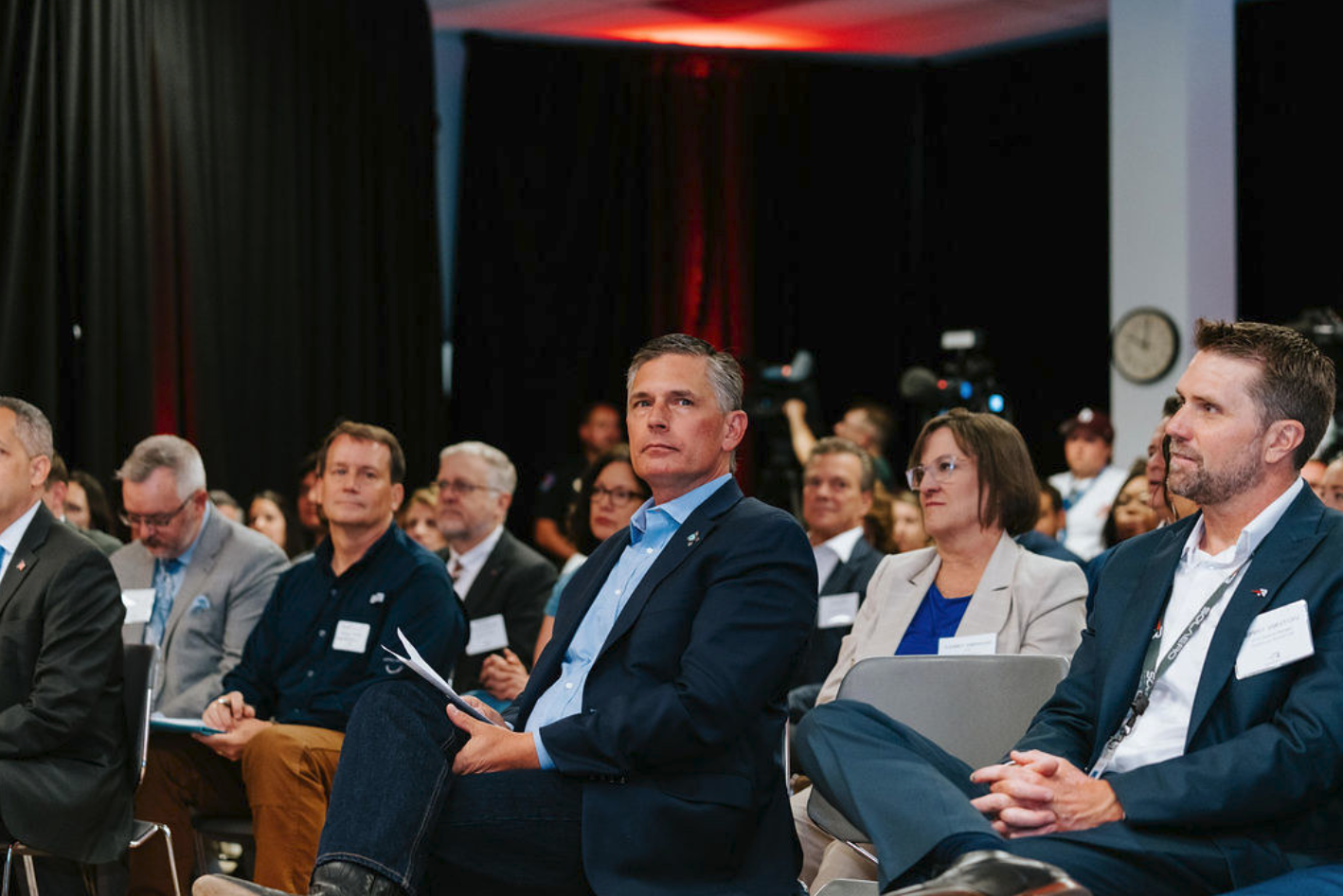Heinrich Welcomes Biden Administration Officials to Highlight Expansion of Albuquerque-Based SolAero by Rocket Lab
The proposed $24 million federal investment, made possible by the CHIPS and Science Act, will create over 100 advanced manufacturing jobs in Albuquerque
ALBUQUERQUE — Today, U.S. Senator Martin Heinrich (D-N.M.) joined U.S. Senator Ben Ray Luján (D-N.M.), and U.S. Representative Melanie Stansbury (D-N.M.), along with Governor Michelle Lujan Grisham and Albuquerque Mayor Tim Keller, to welcome U.S. Deputy Secretary of Commerce Don Graves and White House CHIPS Coordinator Ryan Harper to New Mexico to highlight how the latest $24 million investment from the CHIPS and Science Act will further solidify New Mexico’s role as a leader in advanced manufacturing and create over 100 direct manufacturing jobs in Albuquerque.
“Two years ago, I served on the conference committee of Senate and House members that finalized what eventually became the CHIPS and Science Act. I fought hard to pass the bill because I knew it would have a transformative impact here in New Mexico," said Heinrich. “This investment of up to $23.9 million from the CHIPS and Science Act will create 100 new advanced manufacturing jobs in Albuquerque. These new jobs come alongside the clean energy and microelectronics manufacturing boom that we have spurred through both the CHIPS Act and our landmark Inflation Reduction Act. We are making New Mexico one of the best places in America to manufacture advanced technologies – and by doing so, we’re creating hundreds of new, good-paying jobs that New Mexicans can build their families around in their home communities.”
Last month, the U.S. Department of Commerce and SolAero by Rocket Lab — an Albuquerque, N.M.-based manufacturing company — agreed to preliminary terms for a $23.9 million investment, which would enable SolAero to increase its production of compound semiconductors for spacecraft and satellites, as part of an expansion and modernization of their facility in Albuquerque.
Through his previous role on the Senate Armed Services Committee and his current role on the Military Construction, Veterans Affairs, and Related Agencies Appropriations Subcommittee, Heinrich has worked for years to establish a world-class ecosystem in New Mexico for commercial and defense space innovation, including an exceptional workforce training pipeline. He has secured numerous investments to support the space missions at New Mexico’s military installations and defense research laboratories, including the Air Force Research Lab, Space Systems Command, the Space Rapid Capabilities Office, and the incoming Space Force Delta 11 Training Mission at Kirtland Air Force Base.
In March, following the President’s signature on the Fiscal Year 2024 (FY24) Military Construction, Veterans Affairs, and Related Agencies bill, Heinrich announced that he had secured more than $1.5 billion in military construction funding for New Mexico’s military installations during his tenure in Congress.
In the Fiscal Year 2024 Defense Appropriations Bill, specifically, Heinrich secured funding to establish a Space Modeling, Simulation, and Analysis Hub to support simulations of real-world space threats. This Hub will help the U.S. Space Force achieve its 2026 target for delivering maximal operational capability in the form of new, more resilient space systems. He also secured a $7.5 million increase for continued research and development of ground-based satellite infrastructure.
In 2022, Heinrich served on a conference committee of Senate and House members to finalize what eventually became the CHIPS and Science Act, legislation that is boosting America’s economic competitiveness and addressing supply chain issues.
As a member of the Senate Armed Services Committee, Heinrich secured an amendment in the Senate Report of the Fiscal Year 2019 National Defense Authorization Act that encouraged the Air Force to explore modular arrays, like the ones manufactured by SolAero, that combine separate power subsystems into a more efficient and cost-effective integrated system in order to accelerate the deployment of small satellites. Heinrich toured SolAero’s facility at the Sandia Science and Technology Park in Albuquerque in 2018.
BACKGROUND ON SOLAERO BY ROCKET LAB:
Headquartered in Albuquerque, SolAero is one of two companies domestically, and three companies outside of Russia and China, that specializes in the production of highly efficient and radiation-resistant compound semiconductors called space-grade solar cells—devices used in space to convert light into electricity.
Rocket Lab's space-grade solar cells power critical space programs such as missile awareness systems and exploratory science missions, including the James Webb Space Telescope, NASA’s Artemis lunar explorations, Ingenuity Mars Helicopter, and the Mars Insight Lander. Rocket Lab's technology also serves a booming commercial satellite market, such as powering the OneWeb broadband internet satellite constellation. As the United States and other nations expand their technological presence in space, there is a growing demand for space-grade solar cells. Space-based defense systems are integral to our national security and are completely reliant on solar power.
This proposed CHIPS investment would help create a more robust and resilient supply of space-grade solar cells. The modernization and expansion project will increase their compound semiconductor production by 50% within the next three years—helping to domestically meet the growing national security and consumer demand for these solar cells.
For more information on this proposed CHIPS investment in SolAero, click here.
###
